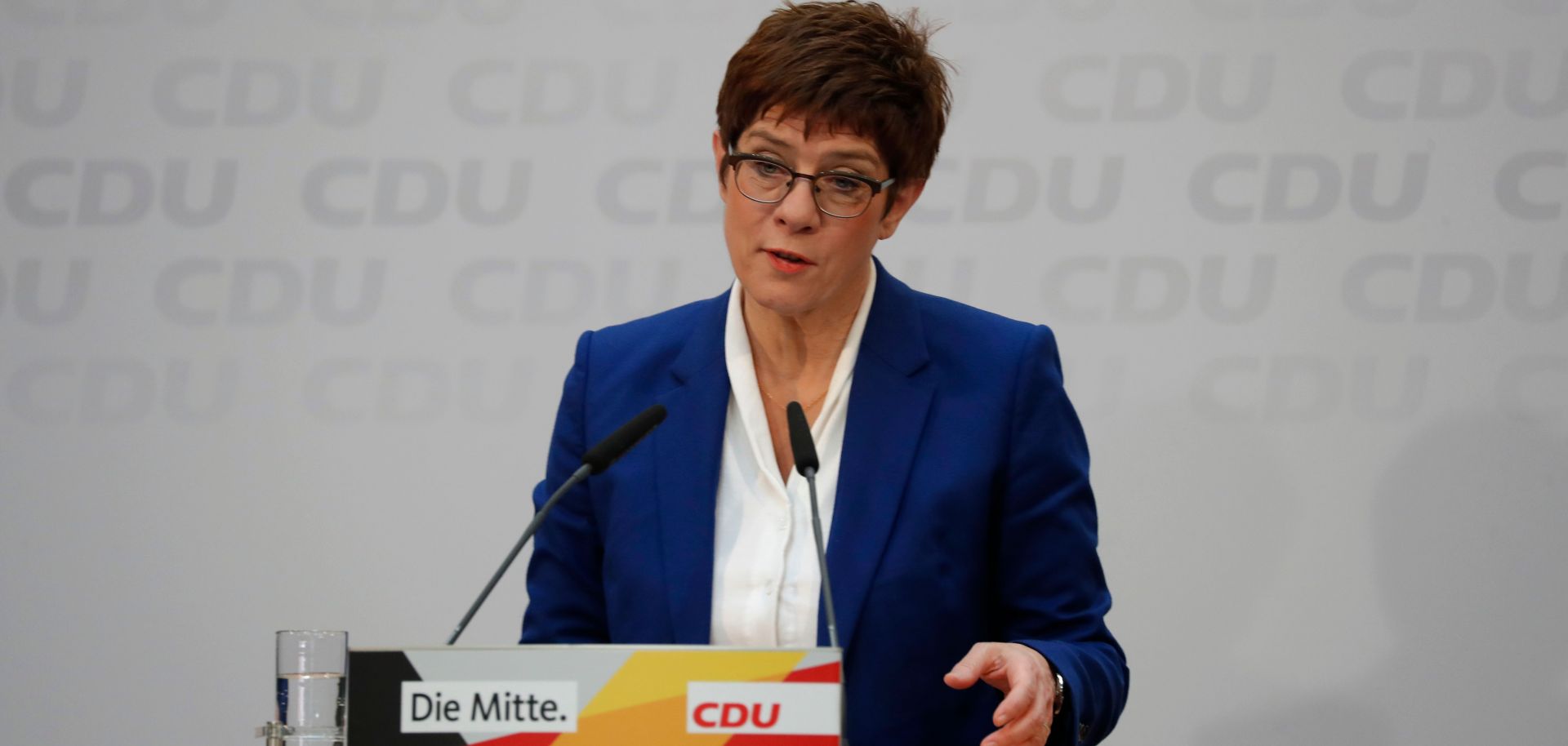ASSESSMENTS
A Convergence of Issues Weighs on Germany

Feb 13, 2020 | 17:23 GMT

The resignation of Christian Democratic Union party leader Annegret Kramp-Karrenbauer, who many thought would succeed Angela Merkel as German chancellor, has proven to be a distraction for Germany's governing coalition.
(ODD ANDERSEN/AFP via Getty Images)
Highlights
- In 2020 Germany's fragile government will become increasingly ineffective, but the members of its governing coalition, worried about a weak electoral performance, will be motivated to avoid early general elections.
- The pace of German economic growth will likely continue to be slow in 2020, but divisions within the government will prevent Berlin from introducing a substantial stimulus package, but modest tax cuts and spending hikes are possible if economic performance is worse than expected.
- Germany will support EU trade deals with the United Kingdom and the United States, but conflicting interests within the bloc will create obstacles towards resolution.
Subscribe Now
SubscribeAlready have an account?
